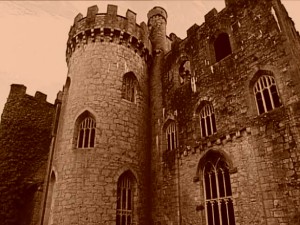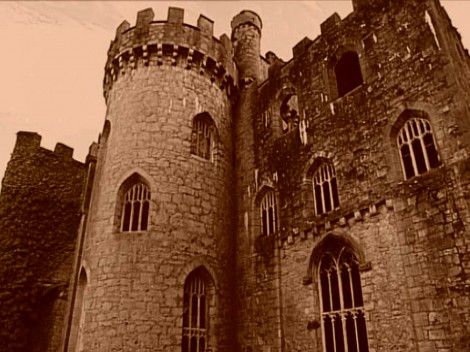New ‘Dracula’ documentary looks at the man behind the bloodsucker

Bram Stoker’s Dracula has entranced audiences for more than 100 years. The original novel, which is the author’s most famous piece of literature, is a bona fide classic deserving of study and discussion. The many cinematic interpretations over the years have either been faithful or radically liberated from the prose. Much like the seminal text, Dracula usually commands attention when he appears in the media or on movie marquees.
Recently, Walking Shadows and Virgil Films released a DVD documentary looking at the phenomenon of the bloodsucking story. Dracula: The Vampire and the Voivode is a smart, academic look at Stoker’s life and literary career. It differentiates between Dracula, the character, and Vlad Tepes, the real-life inspiration. Along the way, it successfully grounds the book and its later incarnations in an historical perspective.
Stringing together interviews with Stoker specialists, the film first starts in the writer’s native Dublin. We snake our way around the storied halls of Trinity College, a venerable institution that formed the creative mind of the writer.
From there, we travel to London and Whitby, England, all in the pursuit of discovering more about the man who held pen to paper.
These early scenes are interesting and information-heavy. They could have been spruced up a bit with more visual documentation. As it stands, the first part of the movie features talking head after talking head. It’s never boring, but it also doesn’t enthrall.
It’s not until we land in Transylvania that the story takes off. Here, in modern-day Romania, we learn of Vlad Tepes (known as the Voivode), Stoker’s inspiration for the character, and the continual tourist attraction around the vampire myth.
Officials with The Transylvanian Society of Dracula, who also helped produce the documentary, offer much-needed historical advice on Stoker’s book. We learn that the Irish writer never set foot in eastern Europe. Also, Vlad was never a vampire. And, except for the name Dracula, the entire fictional story is, as it turns out, fiction.
Still, for enthusiasts, this shouldn’t dampen the mood. Romania, likely for financial reasons, has embraced its image as a faraway locale with mysterious undertones. Dracula memorabilia is sold in the streets, and Stoker pilgrims make their way to Castle Bran, coined Dracula’s castle (even though it has nothing to do with Vlad Tepes).
In some ways, Romania has received the short end of the vampire stick. One novel from an Irish writer has forever changed the impressions of the country for Western travelers. Many people might be surprised at the natural beauty of Transylvania and the rich traditions and folklore that still inform the collective memory of its people.
Dracula: The Vampire and The Voivode, written and directed by Michael Bayley Hughes, is a success because the movie sheds some realistic light on a region that is too often seen through fictional eyes.
By John Soltes / Publisher / John@HollywoodSoapbox.com-
Dracula: The Vampire and the Voivode
-
2011
-
Written and directed by Michael Bayley Hughes
-
Running time: 84 minutes
-
Not Rated
-
Rating:






This article’s premise is simply wrong. Vlad Tepes was a Walachian Prince living in Walachia; Dracula is a Transylvanian Count with a castle situated in Transylvania, not Walachia. Bram Stoker only took the name “Dracula” for his book — which, incidentally, derives from the Catholic Order of the Dragon from the Middle Ages. And the castle depicted in the story is NOT Bran Castle. See: http://www.bran-castle.com
Hello,
Thank you for the comment. I highly recommend the documentary to you if you’re interested in Dracula. The information for the review was taken from the movie. I will check on the castle, but again the movie’s producers shared that image with me and they told me it’s Bran Castle. Could it be a back view?
Anyway, thank you for reading, and rest assured I will double check my facts today and get back to you.
John
OK…upon further research, I’m going to stand behind the article. Count Dracula is a fictional character from the mind of Bram Stoker. It is loosely based on Vlad Tepes, a Walachian Prince.
If you can provide evidence that there was such a person as Count Dracula, I’ll stand corrected. I do agree that Stoker took the name Dracula for the book, and that it derives from Order of the Dragon.
Upon further reflection of Bran Castle…I believe the picture may be a close-up back view, but I can’t confirm. I will correct that photo credit.
Thank you for being such a great reader. Thanks.